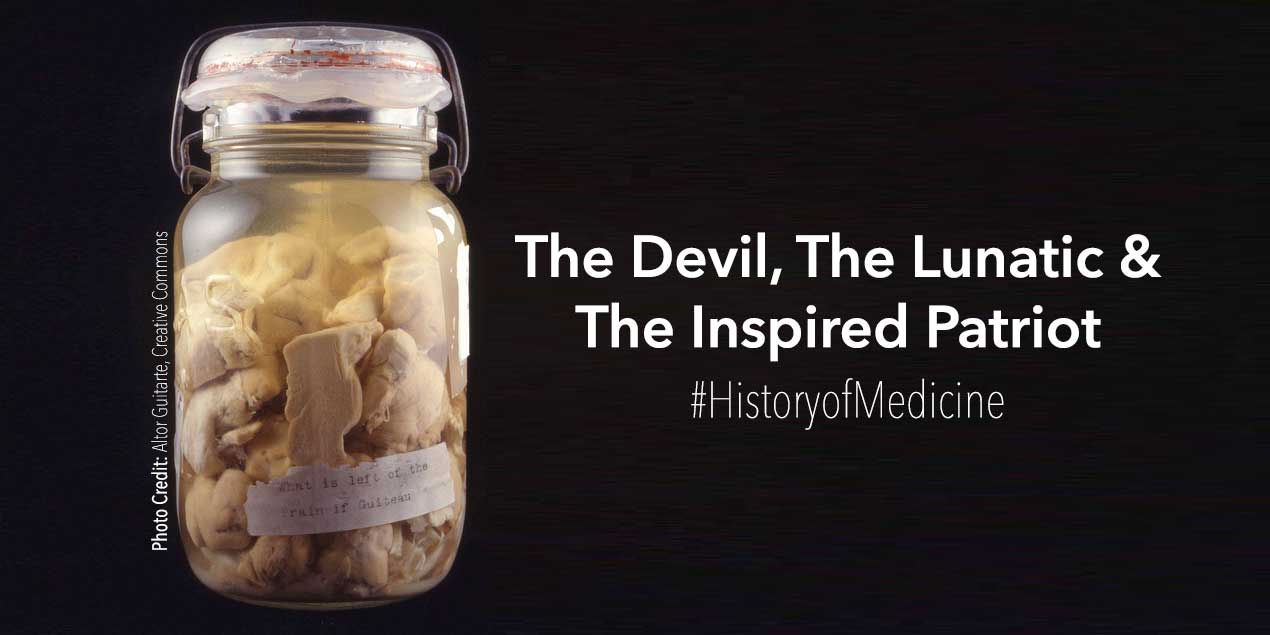The Mütter Museum at the College of Physicians of Philadelphia is America’s finest museum of medical history. Home to many treasures, from Albert Einstein’s brain to Dr. Joseph Hyrtl’s human skull collection that debunked phrenology to the plaster cast and conjoined liver of “Siamese twins” Chang and Eng Bunker.
Among the 1,800 wet specimens lie several famous human remains. None so widely disgraced as the brain portions of Charles J. Guiteau, the assassin of President Garfield.
“Some think me a devil. Some a lunatic. Some an inspired patriot. The last is right; and I stick to it!” –Charles J. Guiteau
Charles Guiteau was born on September 8, 1841 in Freeport, Illinois. He had an unstable and abusive upbringing. After several attempts in different careers, he chose politics and became delusional about the significance of his political influence. Guiteau believed James Garfield owed his presidential victory to him and became quite disgruntled when he wasn’t compensated with an ambassadorship. In turn, he began planning the assassination.
He borrowed fifteen dollars, bought a revolver, and learned how to use it. Guiteau stalked Garfield for months, learned his habits, and while the President waited to board a train at the Baltimore and Potomac Railroad Station in Washington D.C. on July 2, 1881, Guiteau approached him and shot him twice in the back. The first bullet grazed the president’s arm, the second lodged behind his pancreas. Guiteau was arrested immediately.
President Garfield, all too aware of his fate, exclaimed to the first responding physician on the scene, “Doctor, I am a dead man.” After two months of painful recovery though the sweltering summer, and unsterilized probing of the gunshot wound by twelve doctors, the President died on September 19, 1881.
Guiteau’s murder trial began that very November and dragged on. Remembered as one of the first high profile cases to use an insanity plea, his bizarre behavior during the trial easily proved such plea—He wrote notes to spectators soliciting legal advice, recited his testimony in the form of poetry, continuously insulted the judge, and called the jurors “low, consummate jackasses” to name a few.
Guiteau was hanged on June 30, 1882. His body was autopsied 90 minutes following the execution. The 20 doctors who participated in the autopsy failed to find any substantive irregularities, although they did note some abnormalities in the dura mater (the membrane that surrounds the brain). Some modern pathologists believe Guiteau’s brain was affected by chronic malaria and possibly by cerebral syphilis.
Interested in learning more? Read the National Journal's take on this story.
---
Check out other interesting stories in our "History of Medicine" series:

